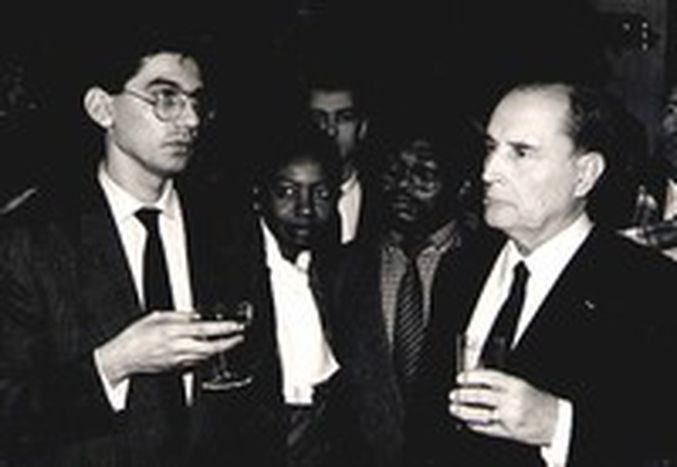
How long before we see pan-European parties?
Published on
Translation by:
 aliette boshier
aliette boshier
The constitution alone is not enough. If the EU is ever to be opened up to its citizens, political leaders must be ready to commit themselves to pan-European projects in time for the next European elections in 2009.
It will take more than the constitution to create the political union so sorely needed in Europe following the implementation of a united currency; it must go beyond merely words. The Constitutional Treaty approved in Rome by heads of government and state on 29 October last year affirms that, “political parties at a European level contribute to forming European political awareness and to expressing the will of citizens of the Union” (art. 46). Although this comprises the first important reference in the constitution to European political parties, in reality, the political alignments of the Old Continent remain woefully nation-bound.
The return of national interests
Even at an EU level, parties should be political structures which unite and organise the people, upholding visions and ideals, embracing the duties of office and bringing to fruition a nation’s projects and programmes. Yet, in the current European climate, parties still remain immersed in the here and now of national affairs. At the same time, however, there is no such party which would be capable of putting a plan into action across even a limited group of member states, let alone implementing a Europe-wide programme. This could naturally be justified by the limited sway which European politics hold over a people who attribute little importance to its representative bodies, but things could also be seen differently, insofar as the parties themselves have an active role to play. As long as they continue to confine themselves to operating on a national level and consider European politics as foreign, the parties will never be fully committed to the conception, execution and fulfilment of projects and programmes on a European level.
When the Greens had a go
At the present time, there nevertheless exist political groupings which style themselves as “European parties”. Disappointingly, however, these are revealed to be “parliamentary groups” in attendance at the European Parliament in Strasbourg and parties with marginal political clout. It would not be true to say that the leaders of the European Popular Party, the European Socialist Party or the European Liberal Democratic Reform Party (ELDR) have reached any higher standing than the national leaders of the different popular, socialist or liberal parties in the individual states. The same can be said for the Greens, despite the fact that in 2005 they set out plans for a homogeneous programme across every EU member state. It remains to be said that, in his role as Secretary General of the European Green Party, Arnold Cassola has yet to prove himself a leader capable of handing down directives to the various green parties at a national level, which are not obliged to toe the party line.
Nevertheless, there has been one example of a trans-European electoral list: in 1989, a young Franck Biancheri, current director of the European think-tank Europe 2020, created the Initiative for a European Democracy (IED) which was put forward for the European elections in Spain, France and Holland, gaining round 400,000 of the votes. The project soon foundered, however, perhaps because it never attempted to set itself up in the individual states by actively participating in their national politics and, consequently, elections. Sixteen years on from that attempt, and the same Biancheri is back for more. In the European stronghold of Brussels it is rumoured that the founder of the first pan-European student association, the AEGEE, has already brought a handful of political aspirers into the fold. Their intention? To stand as a trans-national party in 2009. So it is that, while the European constitution continues to drive discussion, Europe timidly begins to reflect on its future: the European political parties.
Translated from A quando partiti paneuropei?


